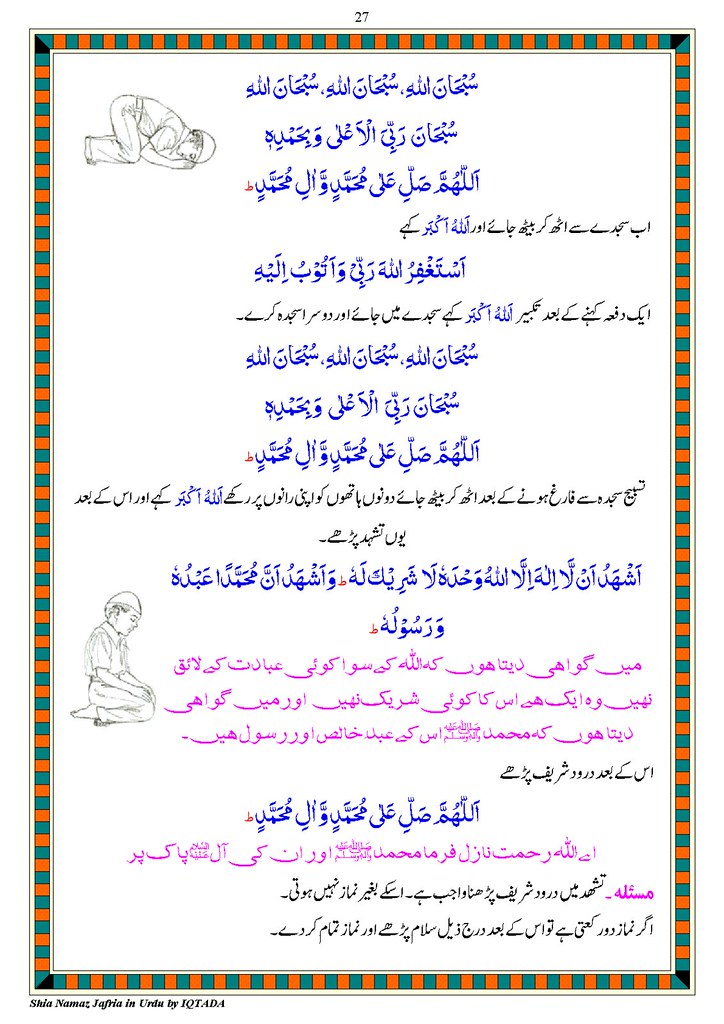

No obligatory practice has been emphasized as much as prayer in the Qur'an. Also, people who were negligent about their prayer have been said to be similar to those denying the religion. It has been said in the Holy Qur'an that the first groans and shrieks of hell dwellers, refer to not having said their prayer in their life in this world. It has such a great importance that has been mentioned, beside faith, as the first and the most important individual and collective practice in many verses.

The word salat (prayer) along with its derivatives has been repeated ninety eight times in the Qur'an. Salat is also used in the meaning of du'a (supplication) in some verses of the Qur'an. The Arabic word "صلاة" (ṣalāt) is derived from the root "ص ل و" which means prayer and its plural form is "salawat". Among those, the most important ones are Night prayer and Nafila prayer which accompany the obligatory ones. In addition to obligatory prayers, there are a lot of prayers which have been mentioned in hadiths as highly beneficial for both this world and the future life. Friday prayer and congregational prayer embody the social aspect of this worship. In addition to its spiritual aspects, prayer is known as the most important motto of Islam. At the beginning, Muslims performed prayer towards Masjid al-Aqsa in Jerusalem al-Quds, but from the second year after hijra/623-4, they were supposed to say prayer in the direction of Ka'ba (Kaaba) in Mecca. Prayer (Namaz) became obligatory for Muslims before the Prophet's (s) hijra. It is also mentioned in these sources that prayer wards the sins off, determines the border of faith and infidelity, and eliminates arrogance. Prayer or al-Ṣalāt (Salah / Salaat / Salat) (Arabic: الصلاة) is the most important worship of Muslims (followers of Islam) which is referred to by highly respectful and reverent phrases in the Qur'an (Quran) and hadiths (hadees), such as the pillar of the religion, ascension of spirit, soul purifier, the first practice which will be questioned about on the Day of Judgement (qayamat), and the requisite for the acceptance of good deeds. Mah e rabi ul awal aur mah rabi ul saniģ9. Mah e muharim (muharam) ke ahem ayaam aur amaalģ3. Anbiya (Ambiya) ki aur muntakhib qurani duainģ1. Ayat e wuzu, wudhu ka tareeqa, istabraĢ4. It includes basic beliefs of Islam, Wudhu, Tayyamum, compelete Namaz, important Duas and Aamal of especial occasions.įollowing topics have been covered in this app:ġ5. This app contains Islami Namaz (Prayer) method according to the Fiqah e Jafaria in Urdu language.


 0 kommentar(er)
0 kommentar(er)
